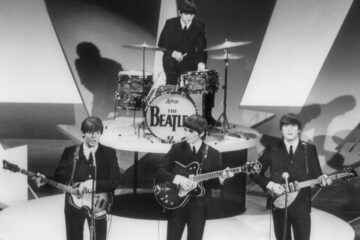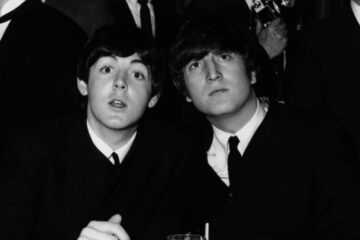By 1970, The Beatles had had their success and were no longer together. Subsequently, the band members were all working on their respective solo projects and exploring their musical influence without the restrictions that came with trying to appease three other members. John Lennon started working on the Plastic Ono Band but had particular trouble getting one song finished properly.
Though the group had reached a level of stardom that musicians who came before and after could only dream of, there was a lot of pressure on the respective members to deliver without working under the banner of The Beatles. Each of them received success in their solo work, with a lot of it forming a large part of their legacies; however, there was clear pressure on Lennon when he started working on the track ‘Working Class Hero’.
The song ended up being a nightmare to write and record. The message that Lennon was trying to convey was lost on listeners, and issues throughout the recording meant that halfway through the track, there was an audible change, given final cuts from two different sessions ended up forming the final recording.
When the song came out, many listeners turned their noses up at it, given Lennon himself wasn’t from a working-class background. Lennon defended the piece, saying that it was never supposed to be about himself or his background; instead, it was a reflection of everyone. “It has nothing to do with socialism,” he said, “It had to do with ‘If you want to go through that trip, you’ll get up to where I am, and this is what you’ll be.”
He continued talking about the periods in his life when his circumstances were vastly different, but his emotions weren’t: “I’ve been successful as an artist and have been happy and unhappy, and I’ve been unknown in Liverpool or Hamburg and been happy and unhappy.”
Lennon also sounded like he was slightly overcompensating in the lyrics when he included the word “fuck” twice. It wasn’t something that fans were necessarily used to, and while Lennon tried to take on the role of a working-class man, it came across to many as insincere. Yoko Ono said in an interview that he was adamant about swearing, explaining, “He told me, ‘That’s part of being working class. It won’t be working class if what you say is all very clean and very proper.’”
The main issue that the Beatles frontman had throughout the song, though, was nailing the recording. He wasn’t happy with how his vocals sounded and continued doing take after take until he was satisfied. In a recent interview, Andy Stephens looked back on the recording process, saying he remembers Lennon obsessing over the track, in total singing “an endless number of takes… well over 100… Probably 120, 130.”
The record’s final cut was taken from two separate sessions, and though the change is subtle, it can be heard. It’s unclear why Lennon was so obsessed with these vocals. It could be because he was a perfectionist who wanted everything right. It could be because he was unsure how the song’s theme would be perceived. Alternatively, it could be because it was some of the first solo work he released following The Beatle’s split. Regardless, despite the controversy surrounding the track, it came out well, not quite hero-like but close enough. It started what went on to be an excellent solo career for Lennon.



